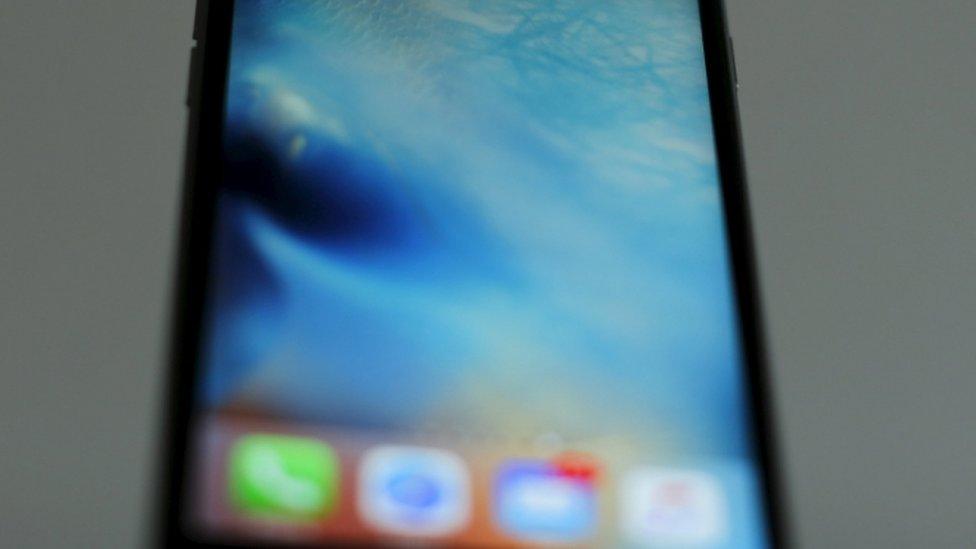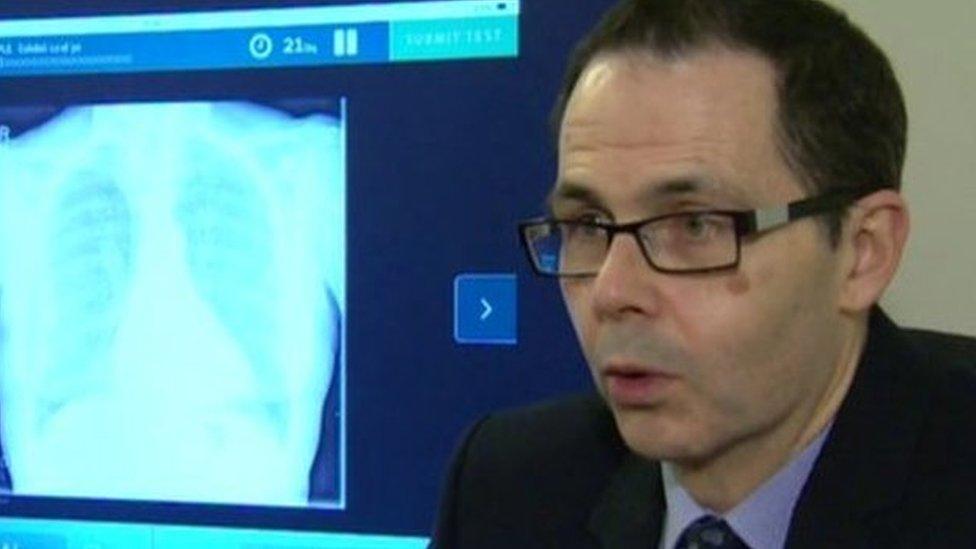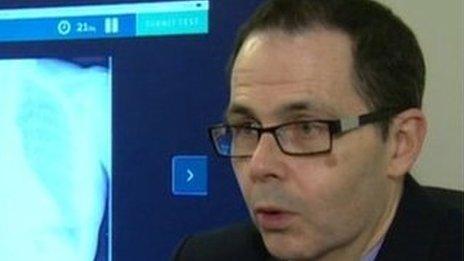Can mobile apps help to improve our health?
- Published

How much can technology and specifically apps help in the battle to improve people's health?
Lots of us are familiar with music apps.
We also use our phones for dating, booking restaurants or playing games.
But how much can technology and apps help to improve people's health?
That question is being posed at a seminar in Belfast involving health and IT experts from EU cities, including Belfast.
They are all part of the World Health Organisation Network.
Those involved believe technology can be the driving force behind tackling some serious health problems, like Alzheimer's.
It is thought that a new smartphone app, developed by scientists at Ulster University in collaboration with Utah State University in the US, could hold the key to preventing the onset of Alzheimer's disease.
Unveiled last year at the world's largest convention for Alzheimer's research in Washington DC, the Gray Matters smartphone app encourages individuals to set lifestyle goals in areas like exercise and nutrition to stress management and brain stimulation - all of which are known to have an impact on the onset and progression of Alzheimer's disease.
The event is expected to tackle health inequalities across the cities.
Joan Devlin is from Belfast Healthy Cities.
"This seminar is all about sharing knowledge, ideas and experience.
"Digital technology can play a very positive role in making the delivery of healthcare more efficient and user friendly," she said.

Dr Tom Lynch is head of nuclear medicine at the Northern Ireland Cancer Centre
Also up for discussion is an app to help junior doctors hone their skills in reading X-rays.
Dr Tom Lynch, head of Nuclear Medicine, Belfast Health & Social Care Trust, launched Experior two years ago, an app developed with local IT company Salt DNA.
Experior helps junior doctors hone their skills in reading X-rays and the platform is proving to be a hit with medics here and across the UK.
Speaking ahead of the event, Dr Lynch told the BBC that the app was now on the international medical map.
"The application trails a doctor's inputs and tailors training to meet their specific needs," he said.
"Since launching in 2014, the platform is now being trialled, not only in Northern Ireland, but in trusts in Great Britain too and in fact there is interest in using the same technology in other medical disciplines including obstetrics and gynaecology."
Northern Ireland is slowly getting to grips with e-health and telemedicine.
An e-health expert from Finland is expected to advise the local health industry that innovation technology in his home is revolutionising how health is being delivered, particularly through life course approaches.
While local IT experts hope to learn from their colleagues in Finland and Wales, it is hoped visitors will pick up a thing or two from Northern Ireland innovators as well.
- Published10 February 2014
